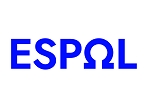Présentation
In the past fifteen years, the formidable stakes of Africa’s geological wealth have positioned the continent as the global economy’s last frontier. Cobalt, a core component of lithium-ion batteries and rare earths, a critical feature of wind turbines, are the green gold of the energy transition.
These resources are also found in two countries best-known for the violence of their colonial and postcolonial trajectories, the Congo and Burundi. Is the new Scramble for Africa ushering in a brighter, more just future – away from the geological scandals of the past?
This course revisits key debates on the relationship between Africa and the world economy to track the structural variables (legal, political, economic, social) that have shaped this relationship over time, from the colonial era to the present. Meanwhile, it asks a core question for our times: how can we respond to the climate emergency without depleting common goods – foremost the economic, societal, and environmental welfare of African societies?
Session 1 – 8 November 2023 - 12-3pm:
Theme 1. Course introduction
Theme 2. The slave trade, colonialism and capitalist expansion
Compulsory reading
Session 2 – 15 November 2023 - 12-3pm:
Theme 1. Extraction, extraversion, protection
Compulsory readings
Bayart, J-F (2000) ‘Africa in the World: a History of Extraversion’ 99 African Affairs 217–67
Tilly, C. (1985) ‘War making and state making as organized crime’ in Evans, P, Rueschemeyer, D and Skocpol, T (eds) Bringing the State Back In (Cambridge: Cambridge University Press) 169-191)
Lonsdale, J (1981) ‘States and social processes in Africa: a historiographical survey’ 24 African studies review 139-226
Theme 2. Underdevelopment, the regulatory state and financialization
Compulsory readings:
Chauvet, L, Collier, P and Hoeffler, A (2007) ‘The Cost of Failing States and the Limits to Sovereignty’ A paper presented for WIDER [online] https://www.wider.unu.edu/sites/default/files/rp2007-30.pdf (accessed 21 April 2022)
Ogle, V (2017) ‘Archipelago capitalism: tax havens, offshore money, and the state, 1950s-1970s’ 122(5) American Historical Review 1431-1458
De, R (2018) ‘The Kenyatta Trial and Mobile Lawyer: Decolonization, Diasporas and a Global History of Rebellious Lawyering’ Presentation at Harvard law school, 5 April
Session 3 – 22 November 2023 - 12-3pm:
Theme 1. Global value chains and common goods
Compulsory readings:
Seck, S L (2017) ‘Revisiting transnational corporations and extractive industries: climate justice,
feminism, and state sovereignty’ 26(2) Transnational Law and Contemporary Problems 383-414.
Breckenridge, K (2011) ‘Special rights in property, why modern African economies are dependent on mineral resources’ in Bayly, CA, Rao, V, Szreter, S and Woolcock, M (eds) History, Historians and Development Policy: A Necessary Dialogue (Manchester: Manchester University Press) 243-260
Cutler, AC and Dietz, T (eds) (2017) The politics of private transnational governance by contract
(Abingdon, Oxon, Routledge) Chapter TBD
Theme 2. Field trip preparation
Compulsory reading
Bourdieu, P (2003) ‘Participant Objectivation’ 9(2) The Journal of the Royal Anthropological Institute 281-294
Session 4 – 29 November 2023 – Field trip - 10am-3pm:<
Modalités
The course will be organized around four sessions of 3 hours and one field-trip of 6 hours.
The course is centered on class discussions and all assigned readings are compulsory unless otherwise noted. For the quality of class discussion, it is essential that you do the readings before each session.
The evaluation process will be threefold:
(1) Group presentations (20% of the final grade) (2-3 students, on one sub-theme of the course).
(2) Second, as international law and international relations are often seen as standing at odds in terms of research approaches and methodologies, students will be asked to conduct fieldwork using methods and focusing on issues discussed, researched and observed during the field trip. You will be required to write a short fieldtrip memo (1000 words) and present it in class. The memo and the in-class presentation will account for 30% of the final grade.
(3) Finally, each student will be asked to write a research essay of 2500 words. The topics will be distributed during the first session. This will account for 50% of the final grade.






